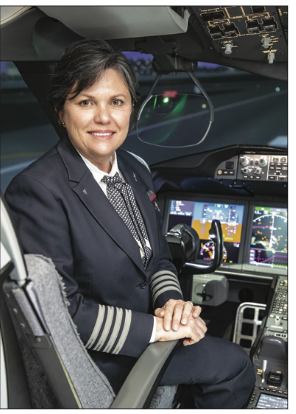While I write this, Southwest Airlines is losing a public relations battle over the thousands of canceled flights it racked up at the end of December 2022. The airline’s labor and management disagree about the underlying causes of the carrier’s inability to launch airplanes, and handle loading and unloading of luggage, but the worst aviation job in December was in customer service at Southwest.
Although the airline’s problems seem to be systemic and deep—and not safety related, though the final chapter hasn’t been written—one thing they seem have little to do with is a shortage of pilots. Which may or may not be the case at other carriers. In fact, an airline pilot shortage is like bad weather: it comes and goes, and it seems no one ever does anything about it. Another thing: The airline business is cyclical, and no one ever does anything about that, either.
I’ve always maintained that there’s not a shortage of pilots qualified to be flight crew at an airline. There is, however, a shortage of people who want to fly a rigorous schedule at all times of the day and night while dealing with bad weather, airport terminals of all sizes and, of course, passengers. Oh, and the unpleasantness of airline travel in general, no matter where in the plane you’re sitting.
They must also be willing to accept the relatively stingy compensation low-time pilots are offered. It’s easy to run up a $100,000 tab for training from ab initio through to ATP, and recouping that investment can take years, as may the training.
Regional carriers, of course, are both the greatest offenders in the compensation arena and the greatest opportunities for freshly minted ATPs. Recently, some have upped their compensation, even to include signing bonuses and other inducements. But as soon as pilots hire on, they’re setting their sights on the right seat at a major carrier and soon are out the door, leaving the regional back where it started.
Depending on who you talk to and when, publicized solutions range from relaxing experience requirements to raising the mandatory 65-year-old retirement age. Few discuss the seniority system, execrable management decisions and outcomes, or how macroeconomics, pandemics, fuel costs and a plethora of other factors can combine to derail an airline career through no fault of the employee.
People who love to fly will readily accept these and other drawbacks, though, and happily commit to, say, 40 years of flying the line. And more power to them.
But perhaps there’s another thing going on: With all the cyclical upheavals, loss of seniority from mergers, the risk of losing medical certification (and thereby your job), etc., maybe being an airline pilot isn’t that good a job, and doing something else with your time and money can be more rewarding and lucrative? Maybe until airlines realize being a pilot isn’t what it’s cracked up to be, there always will be tension their supply and demand?
— Jeb Burnside





Jeb, only an individual can decide wether or not something is “all it’s cracked up to be.” There is no career safe from risk, witness the massive tech industry layoffs going on now. I know many, many airline pilots, including myself, that enjoy all of the responsibility, compensation and lifestyle that comes with our profession. We definitely think it’s all “it’s cracked up to be!”